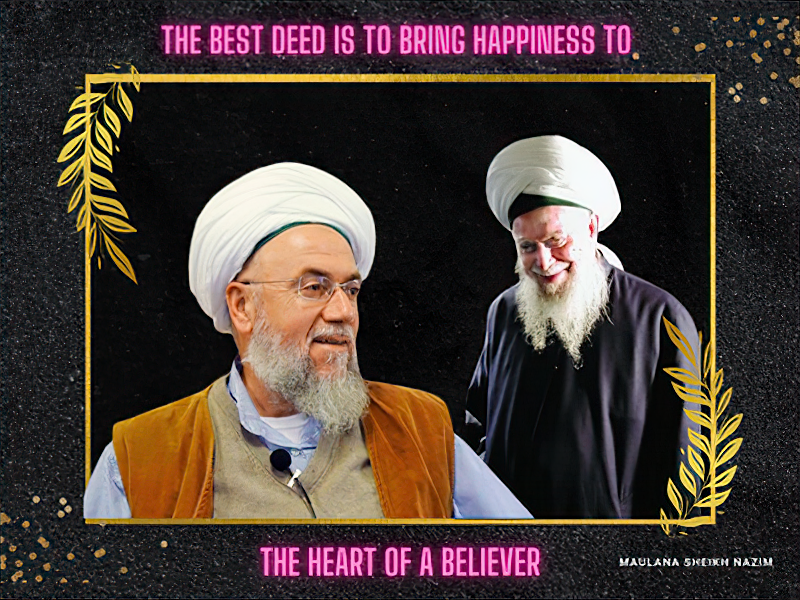
“Bismi Llāhi r-Raḥmāni r-Raḥīm:
إِنَّ النَّفْسَ لَأَمَّارَةٌ بِالسُّوءِ إِلَّا مَا رَحِمَ رَبِّي ۚ إِنَّ رَبِّي غَفُورٌ رَّحِيمٌ
(Qur’ān 12:53). ‘Inna An-Nafsa La- ‘Ammāratun Bis-Sū’i ‘Illā Mā Raĥima Rabbī ۚ ‘Inna Rabbī Ghafūrun Raĥīm’, ‘Verily, the (human) self is inclined to evil, except when my Lord bestows His Mercy (upon whom He wills). Verily, my Lord is Oft-Forgiving, Most Merciful.’
Allah ‘Azza wa-Jalla says the ego has its levels. The first level is Nafs ul-Ammara. What does Ammara mean? It means the one that orders. What is it ordering? It is ordering badness. All people have this. Ego doesn’t order goodness. Everyone has it, not just 99% but 999%. Only 1 % is not under the command of his ego. 999% are people under the command of their egos. What is it ordering? It is ordering all kinds of badness. Moreover, it is right in everything. Others are wrong. All faults, sins and flaws: it doesn’t have them but others do. It claims to be very clean. This is what the ego orders.
All the badness and troubles happening in this world are because of this. They are because of obeying the ego and not controlling the ego. Everything, all badness is because of the ego, because it orders badness and doesn’t order goodness. How can goodness come from a person who is ordered badness? It cannot.
Therefore, there is training of the ego in Islam. And the ego has its levels. Next comes Nafs ul-Lawwamah. It is the second level where you tell your ego, “You are bad. What you say is not right. What you do is not right”. There are six or seven levels. Only Prophets reach the highest level. However, what’s important is to get rid of the first level. It is the lowest level. Don’t agree with everything it says. At least, say no to 1%. Do not follow it 100%. Step by step it will increase, and you will get rid of that rank. It is not a rank but a position. A rank is for being raised. People are raised higher then. People will join the beloved servants of Allah ﷻ. They will be raised.
Otherwise, they do not think anything done is fitting for themselves. They find faults and flaws in others. Therefore, people don’t have any benefit. Many people sometimes say, “Tell me if I am mistaken”. If you tell them, they get upset. They become resentful and don’t like it. Many people say, “Tell me if I am mistaken” just to say it. Even if they don’t get upset when you tell them, they still go on with that [what they’re doing]. May Allah ﷻ protect us from the evil of our egos and from the evil of shaytan. May Allah ﷻ give strength to our Iman insha’Allah. Wa min Allah at-Tawfiq. Al-Fatiha.”
— Mawlana Shaykh Muhammad Adil ق


I think this is among the most sjgnificant info for me.
And i am glad reading your article. But wanna remark on some
general things, Thhe website styyle is ideal, the articles is really nice
: D. Good job,cheers
my homepage :: https://www.fapjunk.com